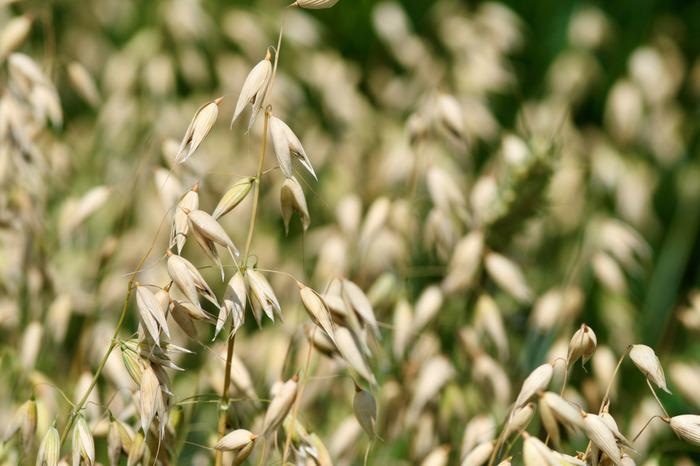Oats are a worldwide crop. It currently ranks seventh in cereal production. In comparison to other cereals, oats cultivation needs fewer insecticides, fungicides, and fertilizer treatments.
 The oat genome, which has now been sequenced for the first time, is very complex and comprises more than 80,000 genes. Image Credit: Olof Olsson
The oat genome, which has now been sequenced for the first time, is very complex and comprises more than 80,000 genes. Image Credit: Olof Olsson
Oat has experienced significant growth in recent years, particularly through oat milk.
“Oat milk is a very high-quality product that tastes good and serves as a vegan milk substitute,” says Dr Martin Mascher, head of the research group “Domestication Genomics” at IPK Leibniz Institute and among the authors of the study. The study was published in the journal Nature.
Unlike wheat and barley, oat is consumed directly.
Barley is used for brewing, wheat for baking bread, but oat, for example in the form of oatmeal, is still very close to the original grain.”
Dr Martin Mascher, Research Head, IPK Leibniz Institute
Oat belongs to the Poaceae family of grasses, which also involves wheat, rice, barley, common millet, maize, sorghum, and sugarcane. Avena species can be found in the wild in the Mediterranean, the Middle East, the Canary Islands, and the Himalayas. Oat is a hexaploid, which means that its genome is made up of three subgenomes donated by three wild Avena species over the last 10 million years.
Individual sub-genomes have also been replaced during the oat’s long evolutionary history. As a result, oats have a very intricate genome that differs significantly from wheat and barley.
The oat genome exhibits overall structural similarity to the genomes of wheat and barley, but frequent genomic rearrangements in oat have resulted in a mosaic-like genome architecture.”
Dr Martin Mascher, Research Head, IPK Leibniz Institute
Dr Mascher was also member of the German Center for Integrative Biodiversity Research (iDiv).
“For the first time, it is now possible to link individual genes to agronomic traits in oat,” says Dr Mascher. The researchers have presented thorough analysis of gene families implicated in human health and nutrition, contributing to the data proving the safety of oats in gluten-free diets, and perform mapping-by-sequencing of an agronomic trait associated with water efficiency.
“In summary, this fully annotated hexaploid oat reference genome lays the foundation for advances in oat breeding and basic oat biology, and for the ongoing pan-genome project,” clarifies Dr Mascher who is the coordinator of the international PanOat consortium that focuses at sequencing the genomes of 29 diverse oat varieties.
With the chromosome rearrangements in a typical spring oat cultivar now identified, breeders and scientists will have access to the information comparable to the genomes of wheat and barley, which might also aid in overcoming breeding barriers caused by a lack of genomic sequence data.
A reasonable option for accurately adapting oat variants is to use the reference genome to map genes involved with agronomic and human nutrition-related traits.
“Modern breeding strategies such as genome editing and gene pyramiding can now more easily be applied in oat to develop varieties that meet the increasing global demand for oat-derived products”, explains Dr Mascher.
“After barley, wheat and rye, the IPK Leibniz Institute has now once again demonstrated its leadership in the elucidation of genome sequences,” says Professor Nils Stein, head of the research group “Genomic of Genetic Resopurces” at IPK.
Dr Stein was also a co-author of the study.
Source:
Journal reference:
Kamal, N., et al. (2022) The mosaic oat genome gives insights into a uniquely healthy cereal crop. Nature. doi.org/10.1038/s41586-022-04732-y.